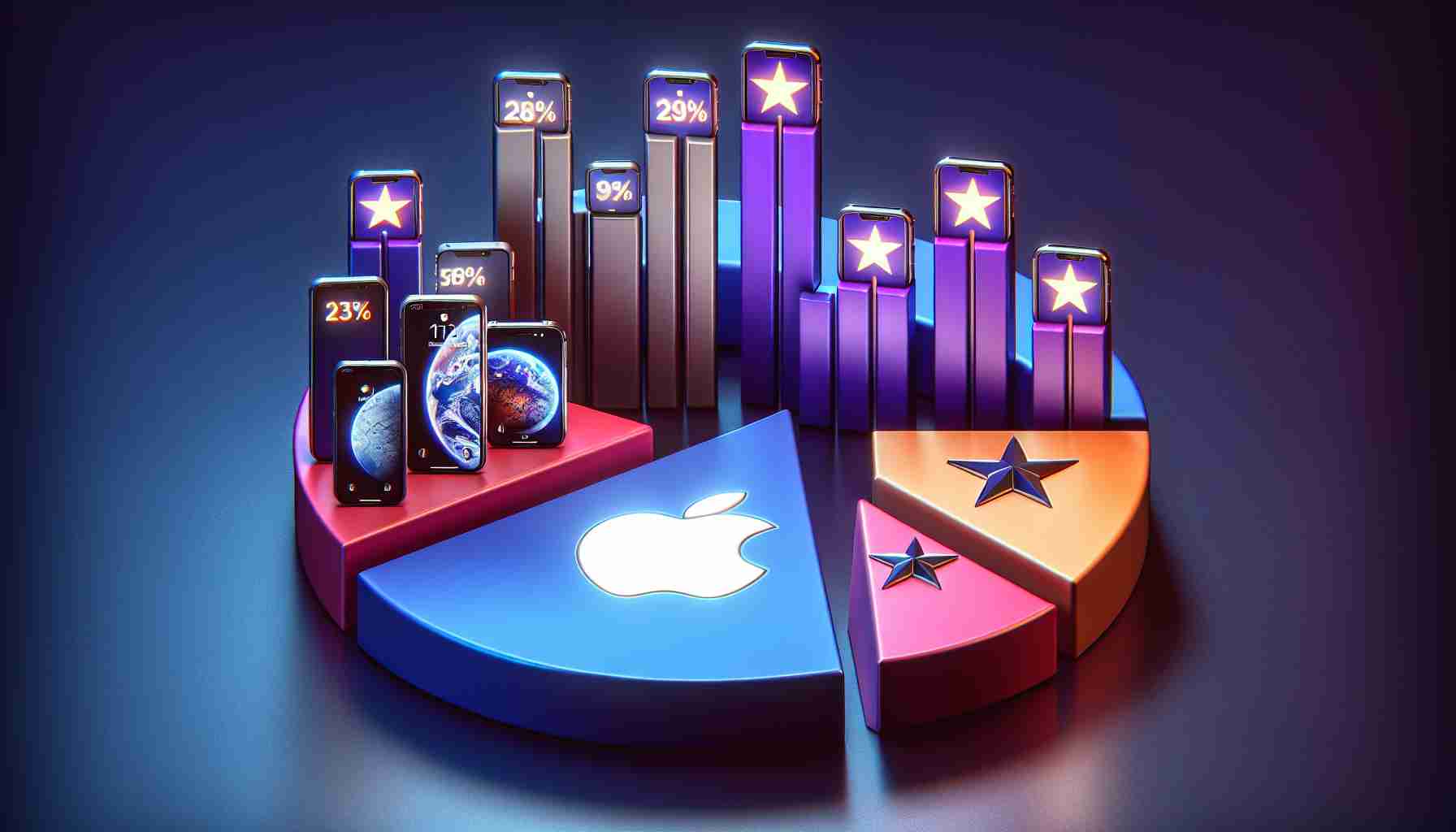
Recent findings reveal that Apple and Samsung continue to strongly influence the European smartphone landscape. According to a study by Canalys, these two technology powerhouses accounted for an impressive 80% of the market’s revenue, solidifying their positions at the forefront of sales in the region.
In the first half of 2024, Apple and Samsung collectively secured a dominant share, representing 59% of the total devices sold. Their individual contributions to shipment volume were 36% for Apple and 22% for Samsung, while in terms of shipment value, they captured 44% and 36%, respectively. This robust performance is largely attributed to their extensive product offerings and the efficiencies gained from their large-scale operations. Both companies benefit from having well-established high-end product lines, which not only streamline their internal processes but also help mitigate rising costs.
In an increasingly competitive marketplace, other companies are vying for the remaining market share. As these brands grapple with fierce rivals and shrinking profit margins—largely due to a focus on the mid-range and budget segments—the challenges are significant. Notably, Xiaomi emerges as the third-largest smartphone brand in Europe, holding a 17% share of shipments and 7% of the market’s value. Other notable players, including Motorola, Honor, OPPO, and Realme, also continue to make their mark in the European smartphone arena.
The Dominance of Apple and Samsung in Europe’s Smartphone Market: An In-Depth Analysis
As of 2024, Apple and Samsung remain the titans of the European smartphone market, commanding nearly 59% of the devices sold, as reported in a recent study. However, a deeper analysis reveals several additional factors contributing to their supremacy, along with pressing challenges that other manufacturers face in their quest for market share.
Key Questions Surrounding the Dominance
1. **What factors contribute to Apple and Samsung’s dominance in Europe?**
– Both companies excel in technology innovation, brand loyalty, and supply chain efficiency. Apple’s ecosystem of devices creates a seamless user experience, while Samsung offers a diverse range of products across various price points, catering to different consumer needs.
2. **How do consumer preferences impact the competition?**
– European consumers increasingly prefer premium smartphones, where both Apple and Samsung excel. Their focus on high-quality materials, advanced technology, and robust after-sales support differentiates them from competitors.
3. **What are the primary challenges these companies face?**
– One of the main challenges is the upcoming European Union regulations aimed at standardizing charging ports and addressing sustainability. Compliance may require significant adjustments in product design and marketing strategies.
Key Challenges and Controversies
The competition in Europe is intensifying, with brands like Xiaomi positioning themselves aggressively. Xiaomi’s strategy focuses on low pricing while maintaining quality—this gambit creates price pressure on Apple and Samsung. Additionally, concerns have arisen regarding the environmental impact of manufacturing processes, prompting calls for greener practices across all smartphone companies.
Advantages and Disadvantages
Advantages:
– **Strong Brand Loyalty:** Both Apple and Samsung have cultivated a loyal customer base that favors their products.
– **Extensive Ecosystem:** Apple’s integration across devices and Samsung’s wide array of offerings enhance the user experience and attract new consumers.
Disadvantages:
– **Price Sensitivity:** With economic downturns and rising living costs, there’s a growing segment of consumers who are gravitating towards more affordable options.
– **Regulatory Pressure:** New regulations aimed at promoting sustainability and repairability could increase operational costs and require operational overhaul.
Conclusion
The dominance of Apple and Samsung in Europe’s smartphone market is secured through a combination of brand loyalty, product quality, and extensive product ranges. However, they face increasing pressure from competitors and regulatory demands that could redefine market dynamics. As other manufacturers seek to carve out their niche, the landscape of the smartphone market could shift more dramatically than anticipated.
For further reading on the smartphone market trends and innovations, you can visit TechCrunch or The Verge.
The source of the article is from the blog mendozaextremo.com.ar
